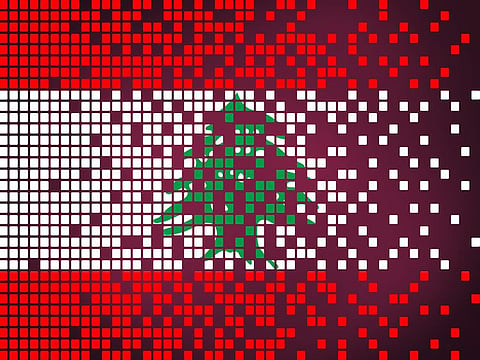The tragic rupture of Lebanon’s social contract
Not too long ago, the prosperous land used to exude self-confidence, chic, cultural élan

Spoiler alert: The social contract between ruler and ruled in Lebanon — the Arab nation that has gone off the rails — has ruptured, as has with it the rule of law.
No really, we, of course, are all too familiar by now with that painful fact — all too familiar with the tragic fate that has befallen this once beautiful, little nation on the edge of the Mediterranean Sea.
Yet, every time we read a news story about the unimaginably harrowing life that its ordinary citizens have lived since 2019, when the political, economic and social system began to fray, totter and then collapse, we find ourselves unable to resist the urge to read on, though all the while turning away with nauseated disbelief at the excesses of the country’s ruling elite, whose members’ fierce parochialism is clearly the cause of that tragic fate.
Last week, the Lebanese currency, the Lira, lost still more of its value, falling to a historic 80,000 to the dollar. That matters — matters a lot — to these very ordinary citizens because they have their savings and they get their salaries in Liras.
And it matters further still because they live in a country whose national currency had already lost 90 per cent of its value, whose inflation has risen to 189 per cent — the second largest in the world — and 80 per cent of whose people live under the poverty level.
Protesters responded to the added loss in their currency’s purchasing power by putting to the torch six banks in Beirut and then gathering outside the house of Salem Sfeir, head of the Lebanese Bank Association, where they started a fire.
That, as we all know, was not the first demonstration of pique at Lebanon’s fractured financial system. We all surely still retain in our minds those bizarre images from last year of helpless depositors, maddened by the restrictive laws that prevented them from accessing their accounts, individually stormed their banks, armed with weapons demanding that tellers hand over what was owed them.
Look, if you want to consider how a dysfunctional state Lebanon has become, consider how for the last two months members of parliament have haggled, then haggled some more, over electing the nation’s president, yet to no avail, which means the country has functioned without a sitting head of state for that long duration of time.
The struggle continues
As of this writing, they continue to haggle.
It is universally recognised by now that it was members of that very elite who callously orchestrated the country’s disastrous descent into penury.
In May last year, while on a visit to Lebanon, the UN’s Special Rapporteur on extreme poverty and Human rights, Olivier De Scutter, declared: “Impunity, corruption and structural inequality have baked into a venal political and economic system designed to fail. The political establishment knew about the looming cataclysm but did little to avert it ...”.
Around the same time, the World Bank called the crisis in Lebanon — the worst the world has seen since the 1850s — one that was “deliberately orchestrated by an elite that has captured the state and lived off its rents”.
That kind of elite predation continues, as we speak, to cause unprecedented social and economic pain to the majority of the six million souls who make up Lebanon’s population.
Yes, the fate that has befallen Lebanon has brought with it irremediable suffering, with the sense of despair that defines the ethos of its society seeping deep into the Lebanese people’s mindset.
A basket case
In the mid-19th century, Emperor Nicholas of Russia coined the phrase “the sick man of Europe” to describe the then ailing Ottoman Empire, but the phrase in later years was picked up as a label to describe any ailing European country experiencing irreparable turmoil that threatened to tear it apart.
Those of us, including this columnist, who grew up in Lebanon in the mid-1960s and there made their original leap to a maturing consciousness, remember Lebanon the country, not Lebanon the state.
We remember a prosperous land nestled along the azure waters of the Mediterranean Sea that exuded self-confidence, chic and cultural élan. None of us at the time would’ve imagined that that Lebanon one day would become “the sick man of the Arab world”.
“Pity the nation whose sages are dumb with years/and whose strongmen are yet in the cradle”, we read in Khalil Gibran’s celebrated 1933 poem, one whose prescience makes the poet sound like a contemporary of ours. “Pity the nation divided into fragments, each fragment deeming itself a nation”.
What else is there to say?
Fawaz Turki is a noted journalist, academic and author based in Washington. He is the author of The Disinherited: Journal of a Palestinian Exile.
Sign up for the Daily Briefing
Get the latest news and updates straight to your inbox



